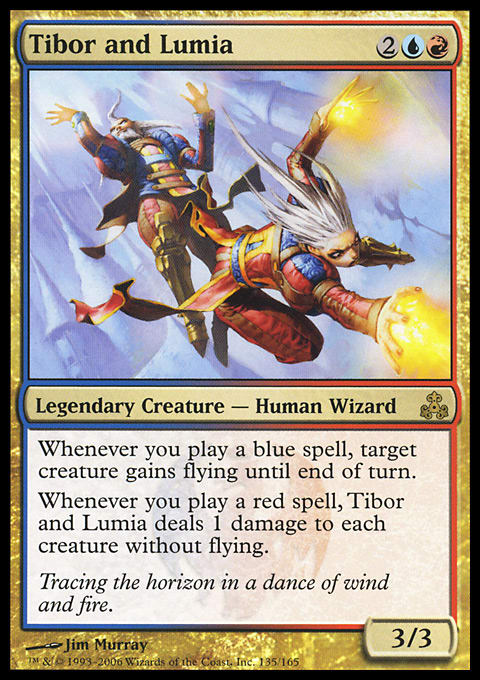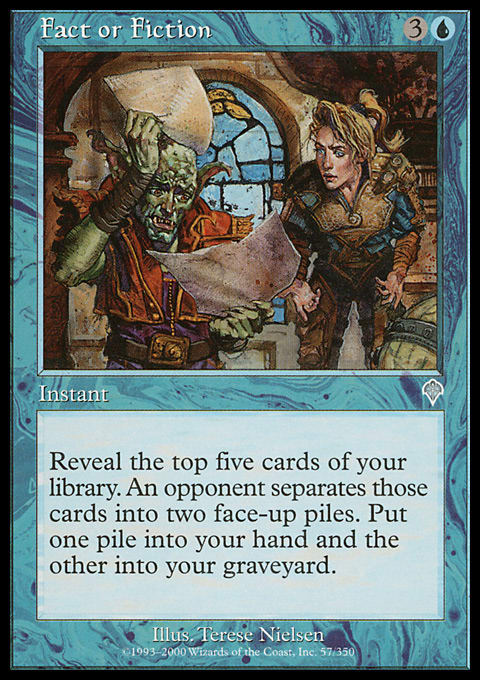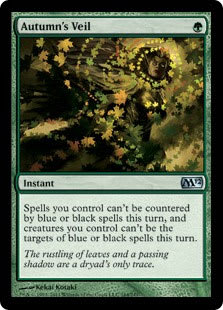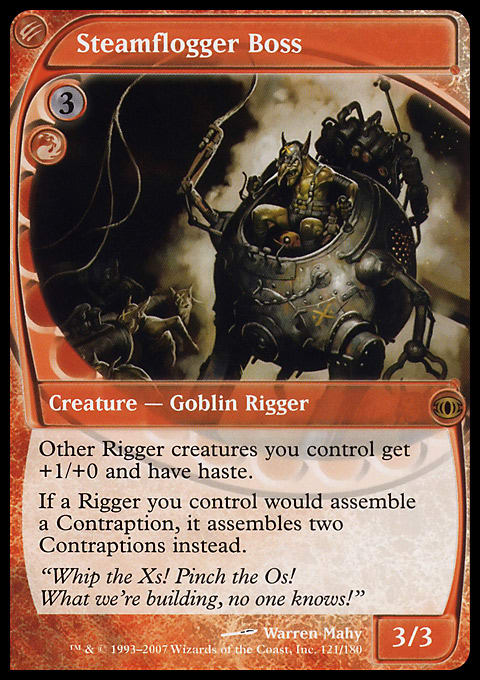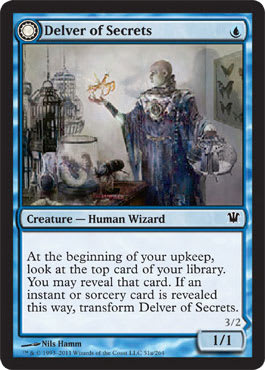People choose to play Magic for many reasons. If you read Magic articles like this on the Internet, it's probably something you have more than just a passing interest in. Even so, this particular article might not be for you. If you're trying to find ways to improve your game and you hope to someday take on the best of the best on the Pro Tour, you should definitely keep reading.
If you don't both really love playing Magic and really crave winning, you probably aren't ready to endure the grind needed to maximize your success at this ultracompetitive and unforgiving game. If you think you're ready or you want to determine if you are, here are some things you should know. There are nine key elements to elevating your game to the highest level.
Teammates
Don't go it alone. I'm not saying you can't be successful as a lone wolf spending twenty hours a day playing Magic Online and reading strategy articles on the Internet. I'm just saying that to improve quickly, you need teammates. Not just any teammates, however. You need to find people who have the same desire to improve that you do. Too many people seem to want to be part of a team just so they have people to impress with their woefully inadequate Magic knowledge. Here are some important things to look for in potential teammates:- An open mind – Good teammates can admit when they're wrong, and they're open to new ideas and new strategies. They don't continue to argue the wrong side of a point just because they can't admit that someone else is making a better point.
- A good work ethic – One of the reasons to have teammates is to work more efficiently than one person can alone. There is plenty of work to go around: proxying up decks, researching decks, playtesting, deck design, drafting, theory discussion, and so on. You need teammates who are willing to put in the effort to be a real asset to the team—not just leeching off other people's work.
- Compatible personalities – If you're going to spend a lot of time together, it helps to get along and have fun. If you're constantly fighting with your teammates, Magic will quickly stop being fun.
Mentors
Like most pursuits in life, it helps to have people around you who are better at it than you are. One of the best ways to improve is to find one or more players who are clearly better than you to learn from. Don’t just take their word for it either. Focus on three things:
- What have they accomplished? Have they won PTQs? Made Day 2 at a Pro Tour? Cashed at a Grand Prix? Do they simply seem to go undefeated at every FNM? Do other players view them as sharks?
- Your personal experience. Do they seem to outplay you when you're matched up with them? When you watch them play, does they seem precise? Do they make plays that are as good as or better than the ones you would have made?
- Personality. Just like any other teammate, you'll hope to spend a lot of time with these people, so do they seem like people you'd be comfortable deferring to when working on Magic together?
If you're lucky enough to have a mentor who is clearly much better than you, you should initially assume that he is always right about Magic topics—even though this won't always be the case. If he's truly much more advanced than you, this will be true often enough that it will be most efficient and helpful to work under this premise. As you find yourself improving and disagreeing with his Magic views more and more frequently, it will become time for you to change your paradigm.
Research
Fortunately, there are also many good virtual mentors available to you online. The more time you spend reading strategy articles, the better. Just like learning anything else, you want to become a sponge for Magic knowledge. After you read enough articles, you should be able to form an idea of which authors know what they're talking about and which authors don't. In addition, you can research the authors to form an idea of which ones have impressive tournament accomplishments as well as the ones who don't, but who are still well regarded for their writing.
In addition, there is quite a bit of useful Magic data to be mined and parsed available online. Careful searching will reveal which decks have dominated recent premier events in various formats as well as what decks are kicking butt on Magic Online. There is even an app for Apple devices called Decked Drafter that includes advice and card rankings for drafting.
Virtual Testing
I firmly believe that you can't completely replace live testing for a live premier event. However, I also believe that live testing needs to be supplemented with virtual testing. Both Decked Drafter and Decked Builder are useful for practicing putting decks together, but the most important tool for this is Magic Online, of course. The average competition on Magic Online will generally be tougher than most FNMs and small local events—unless you live in an extremely strong area. Not only can you find solid opponents online, but you can find them 24/7. In the time it takes you to complete one real-life Draft, you can do multiple online. Two-player Constructed queues are a great way to do some serious deck testing with sideboards. When preparing for a PTQ or Grand Prix, you should be playing in at least one or two Magic Online events every day.
Live Events
As I mentioned, if you're preparing for a live event such as a Grand Prix or a PTQ, there is no replacement for live testing. One of the best ways to get ready to win a live event is to play in live events. Every PTQ you play in should help make you be better prepared for winning one in the future. There are several things about the experience of playing in live events that Magic Online events don't replicate:
- Procedure errors, timing rules, judge calls – If you only play online, these sorts of things don't come up, but they're an important part of live Magic that you need to learn how to navigate. Time management is also different without a chess clock.
- Physical stress of a daylong event – There's nothing quite like having to get up really early in the morning, driving to a venue, and then playing seven or more rounds of Magic with long waits in between some rounds and no time to even hit the bathroom between others. Don't even get me started on trying to make sure you have proper food and hydration during a full day event. Most people are shocked to find out how physically overwhelming a long tournament can be.
- Personal interaction – When playing online, you can almost imagine that you're playing against an AI. In person, you're dealing with someone whom you pretty much have to talk with at least a little bit. People may try to bluff you, and you might be able to bluff or read them. There are many game factors that are changed by actually having a physical person sitting across from you.
Tuning
Thanks to the Internet, the importance of being a great deck designer is extremely diminished. It's entirely possible to have an impressive Magic Pro Tour career without ever designing a successful original deck. There will always be enough information on the Internet for you to determine several solid decks for you to choose from and to figure out which is a good fit for you.
The skill set that remains extremely important and relevant is deck tuning. If you can become a master deck tuner, you will have a major advantage in Constructed events even against players who are better deck designers than you. It’s easy to determine that Delver and Wolf Run are good decks, for example, but how do you determine exactly what the right version is? When researching decks, you will often find a deck list that won a big event that isn’t actually a very optimal version. Perhaps it was an innovative deck for that event played by a terrific player who had some good luck. The fact that a deck won an event doesn’t mean that it’s properly tuned. This is especially true because the environment is constantly shifting, making it necessary for you to be constantly making slight changes to your deck and sideboard.
Being Different
Thanks to the amount of discussion about Magic on the Internet, there ends up being tremendous pressure to conform to accepted ideas. I'm always surprised just how much shock and horror there seems to be when I suggest a strategy that contradicts conventional thinking. An open mind actually seems like a pretty big advantage in part because of how rare it seems. If everyone thinks that reading a Draft if correct, you can manipulate a Draft table by forcing the best colors from pick one. If everyone thinks red, white, and blue are the best colors to draft, drafting B/G might become a powerful move. If most people are convinced that burn decks are so bad that they no longer address them with their builds and their sideboards, maybe those decks are suddenly a good choice.
This can be difficult for many players because they want to be respected and admired by others, and buying into the party line seems to be the only way to avoid the derision of others. You just need to stay focused on your goal—are you trying to avoid being made fun of, or are you trying to develop into a top player? In the big picture, high-level success will earn you greater respect and admiration than just trying to fit in.
Being the Same
Being different isn’t a virtue on its own. Usually, when one or two decks are completely dominating the Top 8s of a format, there is a good reason for it. It will often be the right play to take what is accepted as the best deck and work on tuning it to be the best version of that deck that works well in the mirror while also becoming an expert at playing the deck. If it’s accepted that W/U is definitely the best archetype in Draft, perhaps you should force it from pick one rather than accept having to be in a lesser archetype.
One of the best ways to decide whether it’s the right decision to play what everyone else is playing or to be different is to understand your own personal strengths and play style. If the best deck is suited to your strengths and preferences, embrace it and become the local expert for that deck. If not, it’s probably worth trying to find a deck that matches up well both against the top deck and with your play style.
Attitude
Perhaps the most important aspect of developing and working to improve as a Magic player is having the right mindset and attitude. Don't accept losing, but at the same time, learn to lose a game or a match without losing your composure. Win or lose, don't let any game, match, or tournament go to your head. The more every aspect of your life involves calculations and choices designed to help you be a more successful Magic player the better.
For every Magic player who wins a Grand Prix after a night of hard partying, there are several who destroyed their chances of having a successful Day 2 by partying too much after Day 1.
When I go to a major event, I’m constantly planning every aspect of the event and not just the actual tournament. What should I wear to be comfortable? What food and beverage will help me stay focused? How do I get enough sleep? Have I triple-checked my deck list?
Don't lose sight of the big picture and your primary goal of becoming a top Magic player. Great success at anything usually requires commitment and sacrifice. Magic is no different.














